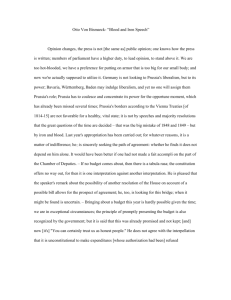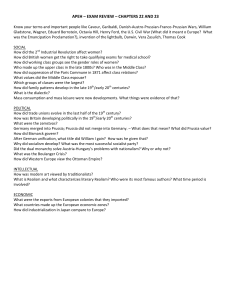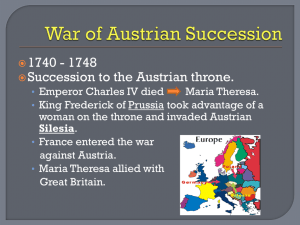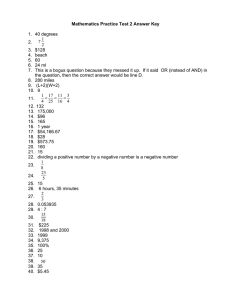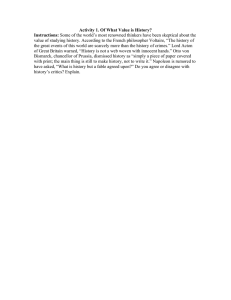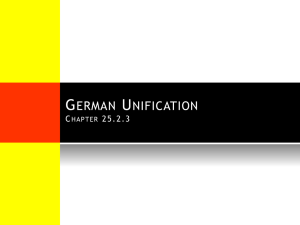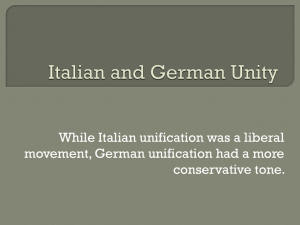To: Students in History 313 From: Otto von Bismarck Re: Lesson on
advertisement
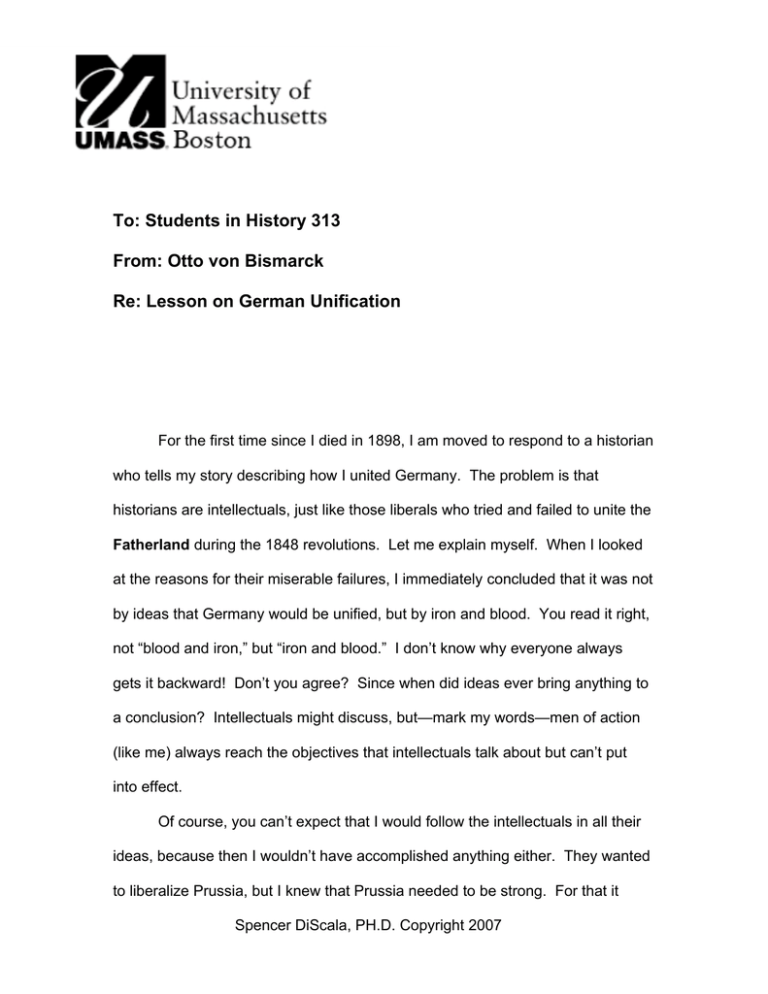
To: Students in History 313 From: Otto von Bismarck Re: Lesson on German Unification For the first time since I died in 1898, I am moved to respond to a historian who tells my story describing how I united Germany. The problem is that historians are intellectuals, just like those liberals who tried and failed to unite the Fatherland during the 1848 revolutions. Let me explain myself. When I looked at the reasons for their miserable failures, I immediately concluded that it was not by ideas that Germany would be unified, but by iron and blood. You read it right, not “blood and iron,” but “iron and blood.” I don’t know why everyone always gets it backward! Don’t you agree? Since when did ideas ever bring anything to a conclusion? Intellectuals might discuss, but—mark my words—men of action (like me) always reach the objectives that intellectuals talk about but can’t put into effect. Of course, you can’t expect that I would follow the intellectuals in all their ideas, because then I wouldn’t have accomplished anything either. They wanted to liberalize Prussia, but I knew that Prussia needed to be strong. For that it Spencer DiScala, PH.D. Copyright 2007 needed a powerful monarchy, and constitutions only weaken kings. That’s why I aimed not only to make Prussia supreme in Germany but, equally important, the king supreme in Prussia. I had to do it if I wanted to unify Germany the right way, to make it strong so it could resist its enemies. These objectives meant that I had to destroy Prussia’s foreign enemies (Austria, but especially France) as well as Prussia’s internal enemies—the liberals who wanted a constitution and a representative assembly—a real one. Can you imagine what they were demanding? I showed them. The Prussians were not ready for a real representative assembly with real power, or for democracy. But what really irritates me about historians is how they blame me for what happened after I unified Germany. They think that what happened later is owing in a significant measure to the way I unified the country. Of course I had to conduct three wars (I figure it was the minimum number), and Prussia had to be strong! After all, I was a conservative, so why should I have implemented liberal ideas. But that doesn’t mean that I was a reactionary! In fact, I tried to steer a middle course after unification, as you will see when you read the lesson. It’s not my fault that after me that idiot Kaiser Wilhelm II messed things up. Did you see what he did after he inherited the throne? He fired me! Me, the architect of unity, to whom he owed everything, including the state and constitution he ruled under. He messed up in domestic affairs and he messed up in foreign policy. The leaders of other countries couldn’t stand the arrogant s.o.b., whereas they liked me! I was able to reason with them and be a moderate Spencer DiScala, PH.D. Copyright 2007 even though Germany was strong. That’s because I didn’t think Germany should be too aggressive, like that whelp who fired me and thought he could take over all Europe (or at least that’s what some historians like Fritz Fischer wrote in the 1960s). And if he didn’t think he could take over all Europe, he let Austria drag him into war, as other historians wrote. Don’t get me started! Anyhow, I ask you to keep an open mind when you read the lesson and other sources about me. I did what I could, and I did so very well! You can criticize me all you want, but I succeeded. It’s not my fault if others messed up after me, so don’t put the blame on me. Spencer DiScala, PH.D. Copyright 2007
